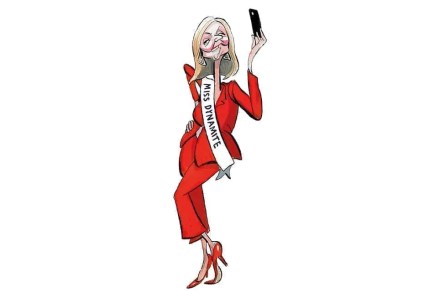The BBC is wrong about OnlyFans
As the cost-of-living crisis bites and a recession looms, women are once again being fed a dangerous message: that the sex trade might be a great place to make money. In an article on the BBC website, OnlyFans has been cited as a lucrative way for attractive youngsters to top up their income. Soaring prices have, we are told by the BBC, ‘led to a rise in young people posting sexual content for money’. The report cites as an example Alexia, a 20-year-old, who posts pictures and videos of herself on the internet. The BBC says her ‘9-5 salary is now dwarfed by the earnings she makes from her online presence.’ It goes on:





















